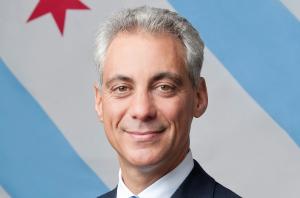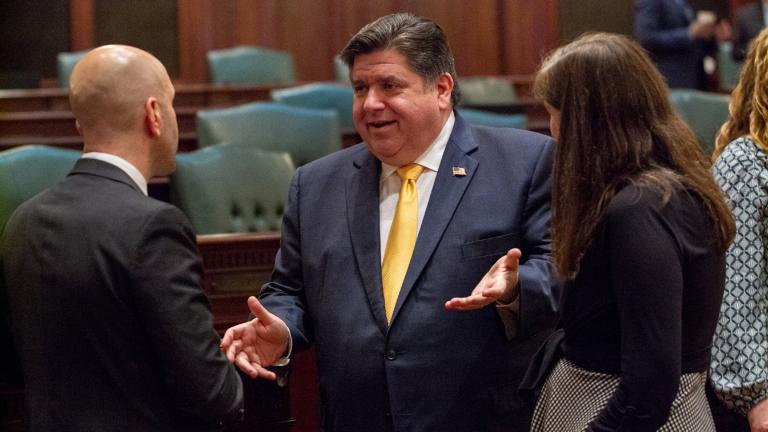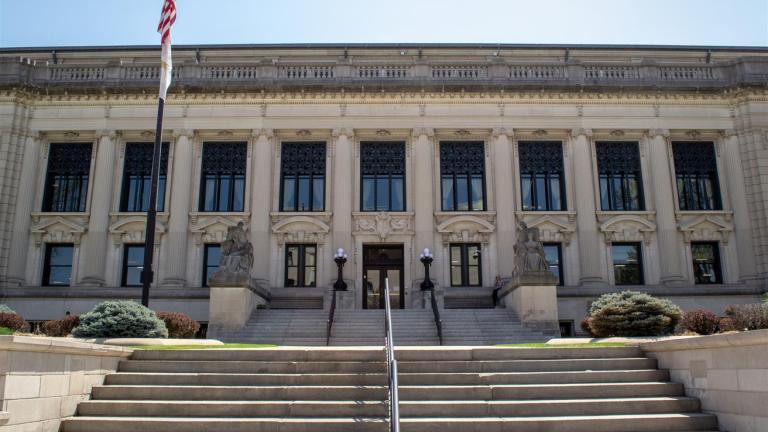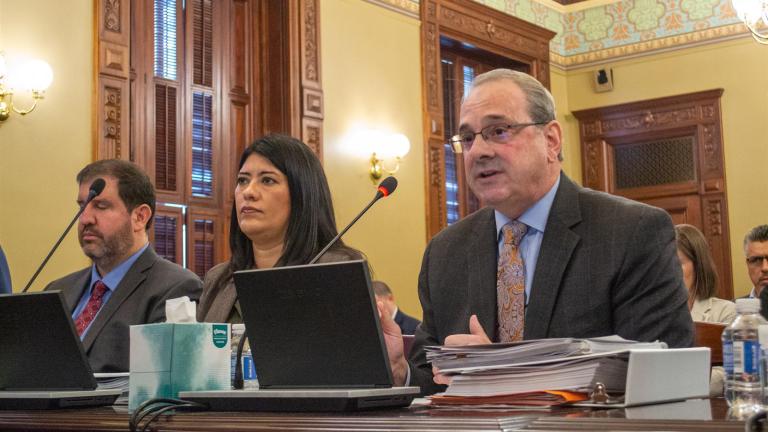 Mayor Rahm Emanuel
Mayor Emanuel and the city of Chicago are back to square one in efforts to resolve the funding crisis for two of the city's four pension funds, likely exacerbating the city's ongoing fiscal problems.
Mayor Rahm Emanuel
Mayor Emanuel and the city of Chicago are back to square one in efforts to resolve the funding crisis for two of the city's four pension funds, likely exacerbating the city's ongoing fiscal problems.
Cook County Circuit Court judge Rita Novak today struck down the negotiated law that would have had employees contribute more to their pensions and see smaller yearly cost-of-living raises in retirement. The law also put city taxpayers on the hook for at least $750 million in additional revenue over the next five years to fund those beleaguered pension systems.
Novak cited the recent Illinois Supreme Court ruling affirming that entrance into a pension system is a "contractual relationship" where benefits cannot be diminished of impaired. She rejected the city's argument that the law "preserved" pensions by including a guarantee for the first time that the city would adequately fund the two pension systems.
The city argued that no such guarantee had existed before.
 Anders Lindall, a representative of AFSCME, speaks Friday at a press conference following the ruling.
Jubilant city workers and a representative from AFSCME high-fived and congratulated themselves outside the courtroom just after the decision came down at 10:30 am. They said that the decision was a victory for "all of Chicago," and said they wanted to be partners in coming up with revenue to fill the massive funding requirements the systems to will now need.
Anders Lindall, a representative of AFSCME, speaks Friday at a press conference following the ruling.
Jubilant city workers and a representative from AFSCME high-fived and congratulated themselves outside the courtroom just after the decision came down at 10:30 am. They said that the decision was a victory for "all of Chicago," and said they wanted to be partners in coming up with revenue to fill the massive funding requirements the systems to will now need.
"All city residents can be reassured that the Constitution—our state's highest law—means what it says and will be respected, while city employees and retirees can be assured that their modest retirement income is protected," Anders Lindall said today.
But if today's ruling is upheld, it almost surely means higher property tax increases than would have been needed with the law in place. Retirees who still live in the city and own property acknowledged that they would feel the pinch of higher taxes, like every other resident. But workers say the reform law would've created undue hardship, because city workers don't receive social security benefits, and many don't receive Medicare benefits either.
 Retired city truck driver David LaPaglia talks about the ruling.
"My taxes went up just like yours did. I did a job and I was promised stuff," said retired city truck driver David LaPaglia. "Everyone's going to pay their share, and I'm going to pay my share also."
Retired city truck driver David LaPaglia talks about the ruling.
"My taxes went up just like yours did. I did a job and I was promised stuff," said retired city truck driver David LaPaglia. "Everyone's going to pay their share, and I'm going to pay my share also."
"City workers and retirees are also homeowners of the city, we have a shared stake in the future of the city," Lindall said, and urged the city to look at revenue sources like excess TIF revenue and having state lawmakers close so-called corporate loopholes.
The city's Corporation Counsel Stephen Patton signaled that the city would continue to fight, saying that the law's fate will ultimately be decided by the Illinois Supreme Court.
"We now look forward to having our arguments heard there," Patton said in a statement. "We continue to strongly believe that the city’s pension reform legislation, unlike the state legislation held unconstitutional this past spring, does not diminish or impair pension benefits, but rather preserves and protects them."
The law, which was agreed to by many labor leaders, called for a gradual increase in contributions from employees, from 8.5 percent of their paychecks to 11 percent. It also reformed the 3 percent compounded yearly cost-of-living raise, calling for a simple raise tied to the inflation rate. The law required city taxpayers to put an additional $50 million per year over the next five years into the funds, and allocated $50 million from an increase in the city's 9-1-1 phone tax to pay the first year's additional payment.
With the law struck down, the city no longer faces a mandated ramp-up in payments in the coming years. But the pension systems would be in substantially worse condition if it chooses not to increase funding now.
Moody's rating service recently downgraded Chicago's bond rating to "junk" status in anticipation that today's ruling would not go in its favor. The service labeled today's ruling as "credit neutral," saying that it, too, believes the Illinois Supreme Court will ultimately decide the pension law's fate.
Watch a press conference following Friday’s ruling with union representatives, retirees, and an attorney who worked on the plaintiffs’ behalf.







